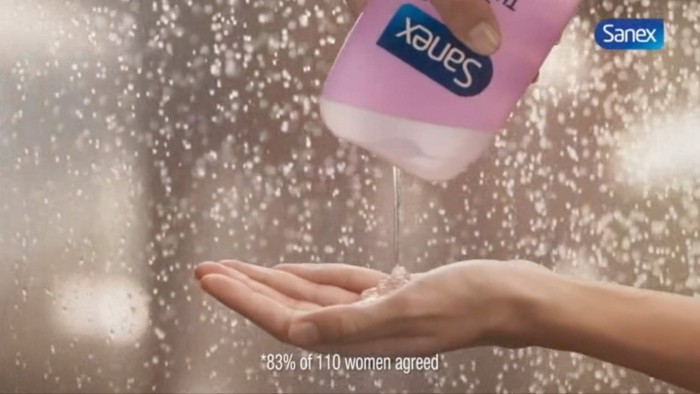Unlock the Editor’s Digest for free
Roula Khalaf, Editor of the FT, selects her favourite stories in this weekly newsletter.
An advert for Sanex shower gel, owned by Colgate-Palmolive, has been banned after the UK’s advertising watchdog found it perpetuated racial stereotypes.
The television advert, which showed scenes of a black woman with irritated, dry skin, followed by scenes of a white woman with smooth skin, “could be interpreted as suggesting that white skin was superior to black skin”, according to the Advertising Standards Authority.
The watchdog told the company to withdraw the ad after concluding that it was in breach of rules banning harmful or offensive advertising.
In its response to the assessment that the advert “included a racial stereotype and was therefore likely to cause serious offence,” Colgate-Palmolive told the ASA it had employed a “before and after” scenario to show their product was suitable for everyone, not to make a comparison based on ethnicity.
The US consumer goods group added that as part of its commitment to diversity, it had chosen to feature models with different skin tones and ethnicities, the ASA said.
The watchdog said that while it understood that such a message was “not the one intended,” it had concluded that the ad “was likely to reinforce the negative and offensive racial stereotype that black skin was problematic and that white skin was superior”.
Colgate-Palmolive, which also makes consumer goods like cleaning brand Ajax, Colgate toothpaste and Speed Stick deodorant, has had several adverts banned by the ASA over the past decade.
In 2018 it pulled a toothpaste ad the UK watchdog deemed misleading for claiming that a Colgate product could “instantly” repair teeth. Another Sanex advert that appeared in 2015 was also banned for making misleading claims about the product’s moisturising capabilities, after competitors Beiersdorf and Unilever lodged complaints.
Colgate-Palmolive did not respond to a request for comment.
The group is among a number of companies recently forced to pull adverts following complaints that they perpetuated racial stereotypes.
Swiss watchmaker Swatch last week removed an advert in which a model was pulling his eyes into a slanting gesture, after Chinese social media users denounced the image as racist, prompting a drop in its share price.
In a statement posted on Instagram on August 16, Swatch apologised for “any distress or misunderstanding” caused by the ad, which it said had been immediately removed, along with all related materials.
Meanwhile last year, US packaged food giant Kraft Heinz apologised for a billboard in London depicting a newly married couple after it was criticised online for promoting stereotypes about black fathers. Kraft Heinz said at the time it would “continue to listen, learn and improve to avoid this happening again”.
